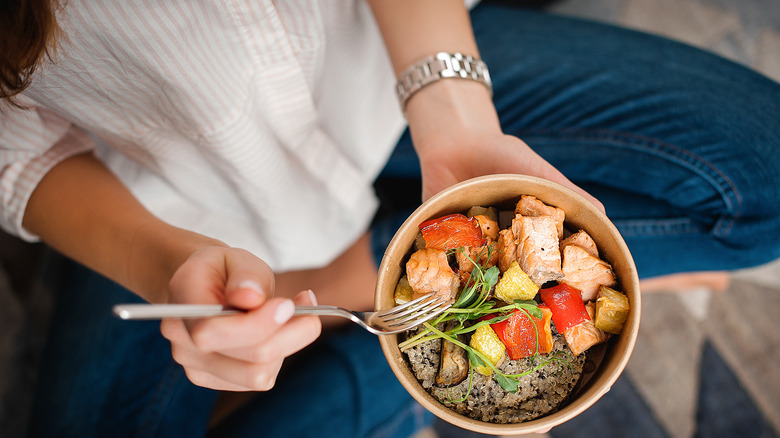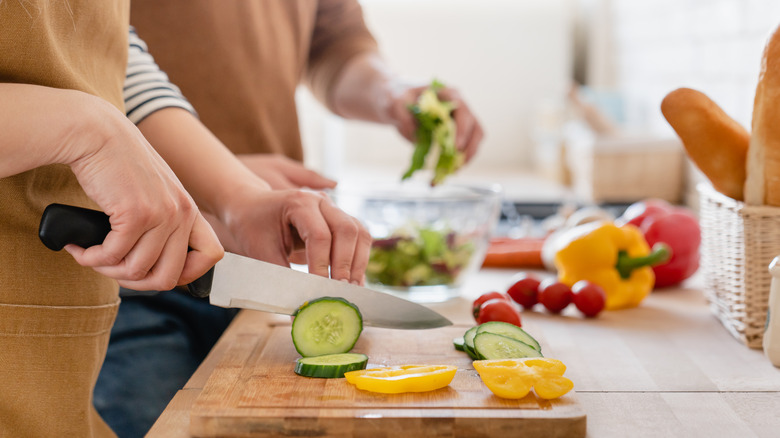The Three Pillars Of A Balanced Meal To Keep You In Your Best Health
Eating during the holidays can easily put us in a state of feast or famine. If we know we're headed to our favorite aunt's house to feast on her homemade bread pudding, we might be inclined to skip a meal or two before then to balance our daily calorie intake. This all-or-nothing mindset can set us up for a vicious cycle of eating, according to registered dietician Lisa Moskovitz. On the "Everygirl Podcast," Moskovitz suggests we can eat that homemade pudding, but first find a way to make each meal balanced and healthy. That means having fiber-rich carbs, lean protein, and anti-inflammatory fat on your plate. Anti-inflammatory fats could include avocado or extra virgin olive oil (via Healthline).
"Having those three things...will really keep blood sugar stable, appetite manageable, energy levels will be good, your mood and mental health will be better," Moskovitz said. "When you have that constant and consistent amount of protein, fiber, and fat at every meal, it makes it much easier to stay mindful and make choices that you want to make and not even feel like things are out of control... you might still have cravings, but you won't feel out of control."
Changing your relationship with food
Moskovitz says on the podcast that labeling foods as good or bad can set you up for unhealthy behaviors during the holidays. What happens is that you determine how you're going to feel before you begin eating. Instead, she suggests changing your relationship with food by looking for healthier messages about food and weight and filtering out the negative messages. Health isn't necessarily about weight or calories.
"Weight loss doesn't mean you're going to be healthier," Moskovitz said. "Being in a larger body doesn't mean you're unhealthier. Being in a very small body doesn't mean that you're healthy."
Moskovitz also suggests using a food diary, not to record your calories but to log why you're eating certain foods. In other words, you could choose a salad because it looks delicious and you know it's going to make you feel good. Or you could eat a salad because you feel guilty that you overindulged the night before and need something low in calories. This helps you determine stressful, emotional, or guilt-ridden eating patterns.
Moskovitz says changing your relationship with food doesn't happen overnight, but it can come by making small changes each day.


